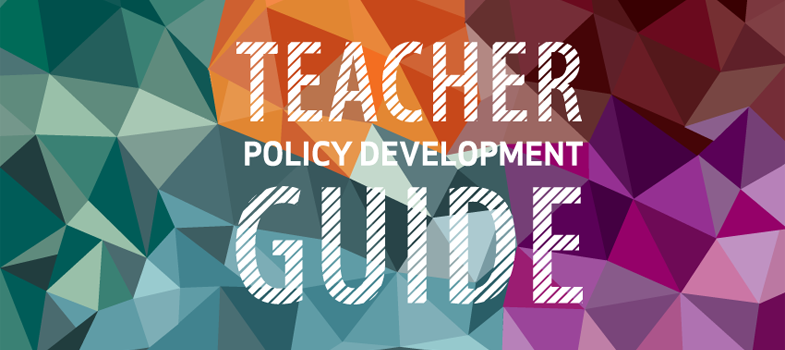Acknowledgements
This Guide has been a team effort, with valuable contributions and inputs provided by a number of experts on teacher policies. It was written by Simone Doctors (Education Consultant), William Ratteree (former staff of the International Labour Organization – ILO) and Yusuf Sayed (Reader in International Education, University of Sussex and the South African Research Chair in Teacher Education, and Director of the Centre for International Teacher Education, Cape Peninsula University of Technology). The Guide was written under the supervision of Edem Adubra, head of the Secretariat of the International Task Force on Teachers for Education 2030, and the coordination of Hiromichi Katayama.
The production of this Guide was supported by the Steering Committee of the Teacher Task Force. Its funding was generously provided by the European Commission and the Government of Norway. Its translation into Arabic, Chinese, French, Portuguese, Russian and Spanish was made possible with funding from the Hamdan Bin Rashid Al Maktoum Award for Distinguished Academic Performance and technical assistance from Humana People to People.
The concept of the Guide was framed by the following UNESCO staff and consultants at the workshop held in May 2014 at the UNESCO International Institute for Educational Planning (IIEP) in Paris: Jean Adote-Bah Adotevi, Endris Adem Awol, Aminatou Diagne, Gabriele Goettelmann, Maki Katsuno-Hayashikawa, Mathieu Lacasse, Hilaire Mputu, Arnaldo Nhavoto, Yayoi Segi-Vltchek, Florence Ssereo and Barbara Tournier.
In addition to the above-mentioned individuals, comments on the initial draft of the Guide were received from Julie Bélanger (Organisation for Economic Cooperation – OECD), Kamel Braham (the World Bank), Dakmara Georgescu (UNESCO Regional Bureau for Education in the Arab States), Mark Ginsburg (FHI 360), Diana Hincapié (Inter-American Development Bank), Vaibhav Jadhav (Savitribai Phule Pune University, India), Liu Jing (UNESCO International Research and Training Centre for Rural Education, China), Olivier Labé (UNESCO Institute for Statistics), Oliver Liang (ILO), Takeshi Miyazaki (Japan International Cooperation Agency), Aidan Mulkeen (National University of Ireland Maynooth), Paz Portales (UNESCO Regional Bureau for Education in Latin America and the Caribbean), Robert Prouty (former World Bank staff ), Mohamed Ragheb (focal point for the Teacher Task Force in Egypt), Emily Richardson (Teachers College, Columbia University), Bonaventure Segueda (Ministry of National Education, Burkina Faso), Sheldon Shaeffer (former UNESCO staff ), Marcelo Souto Simão (UNESCO International Institute for Educational Planning in Buenos Aires), Purna Kumar Shrestha (Voluntary Service Overseas International), Emiliana Vegas (Inter-American Development Bank) and Jesper Wohlert (Humana People to People). Our sincere thanks go to them all.
We also acknowledge feedback received from the participants in the presentation session of the initial draft of the Guide at the 17th UNESCO Asia-Pacific Programme of Educational Innovation for Development (APEID) International Conference held in October 2014 in Bangkok (Thailand) and the validation workshop organised by the Teacher Task Force Secretariat on 18 December 2014 in Rabat (Morocco). Eliza Bennett edited this Guide and Yvonne Rwabukumba provided administrative support throughout its preparation.
Foreword
